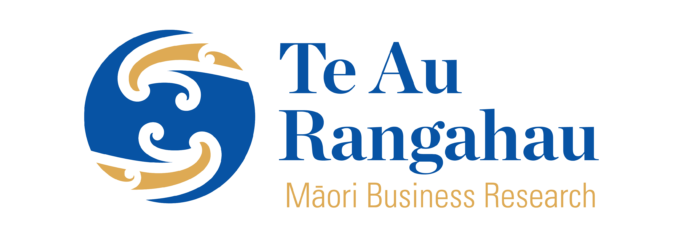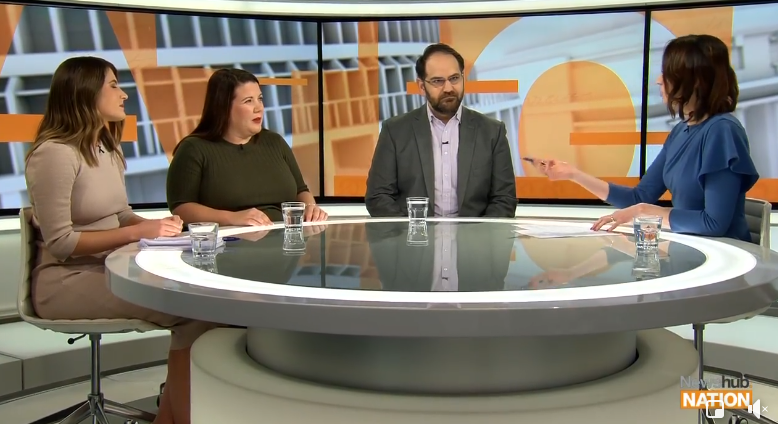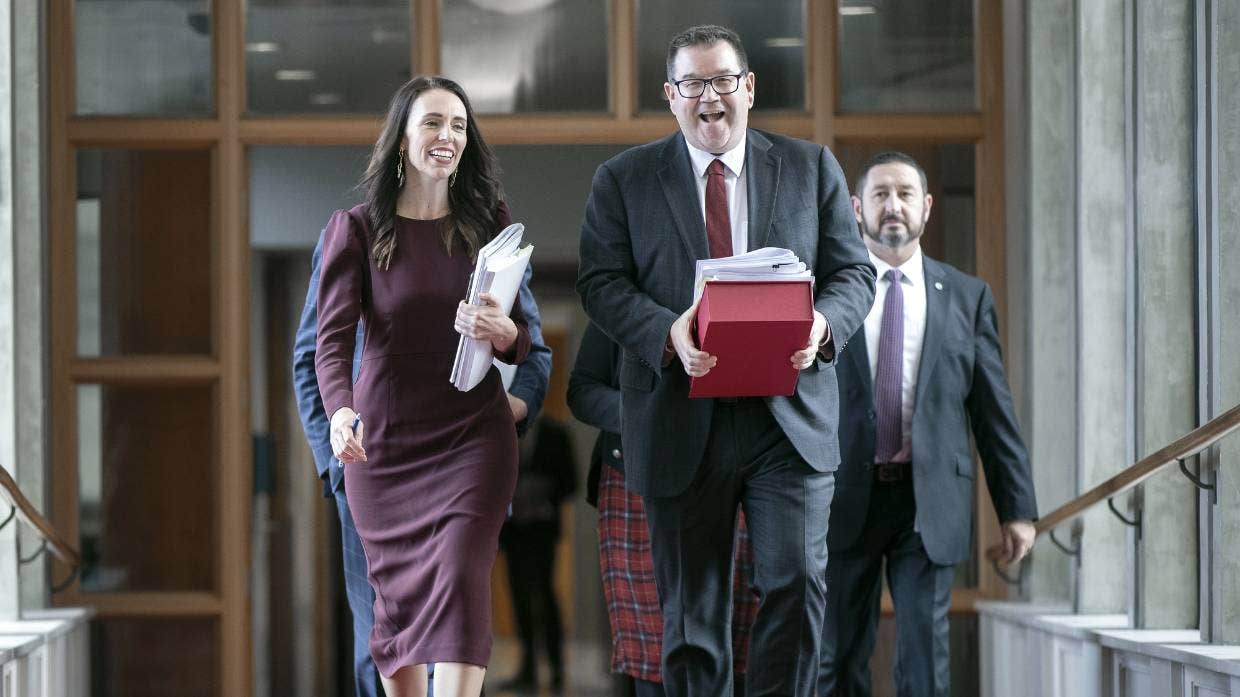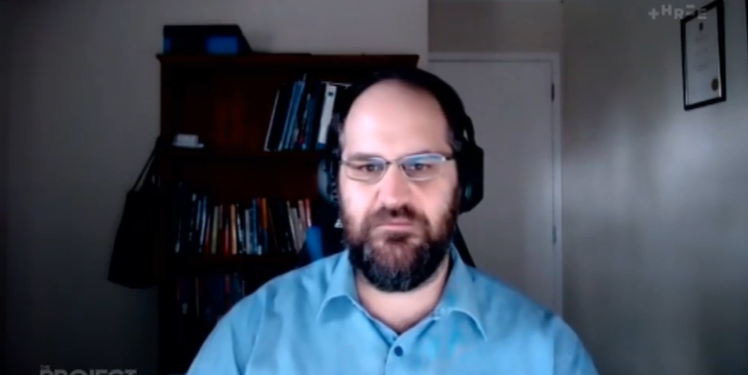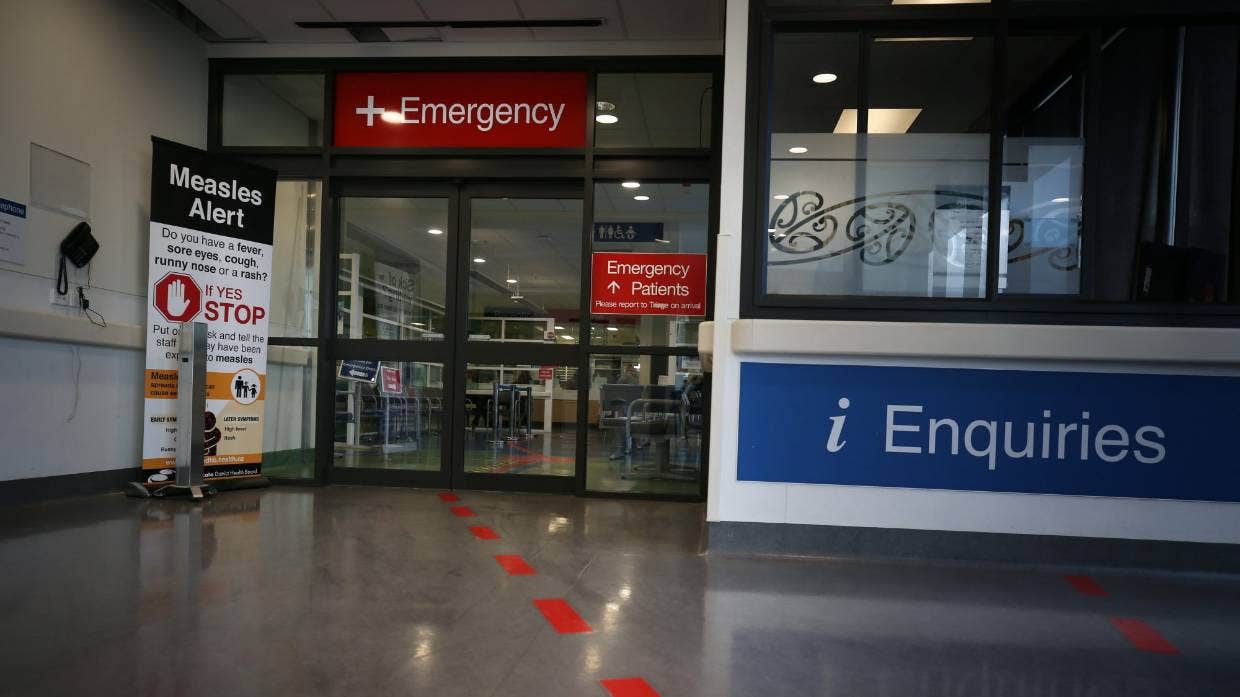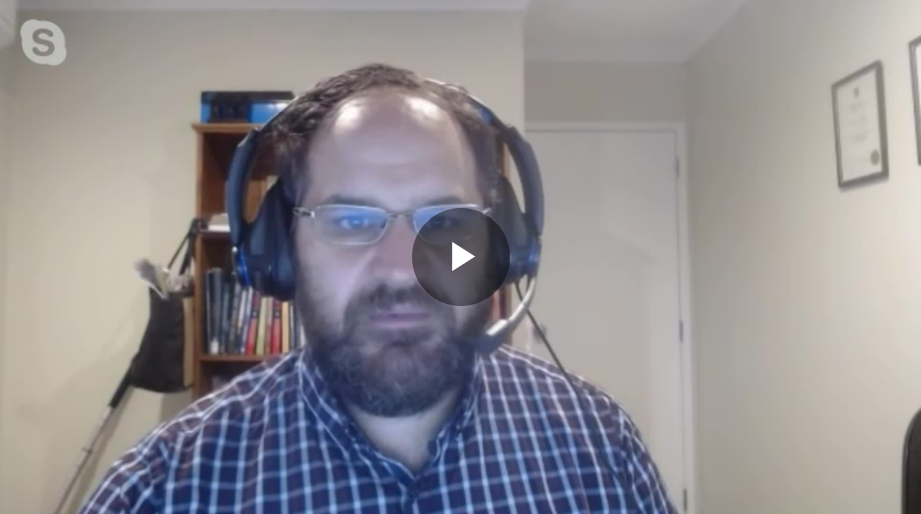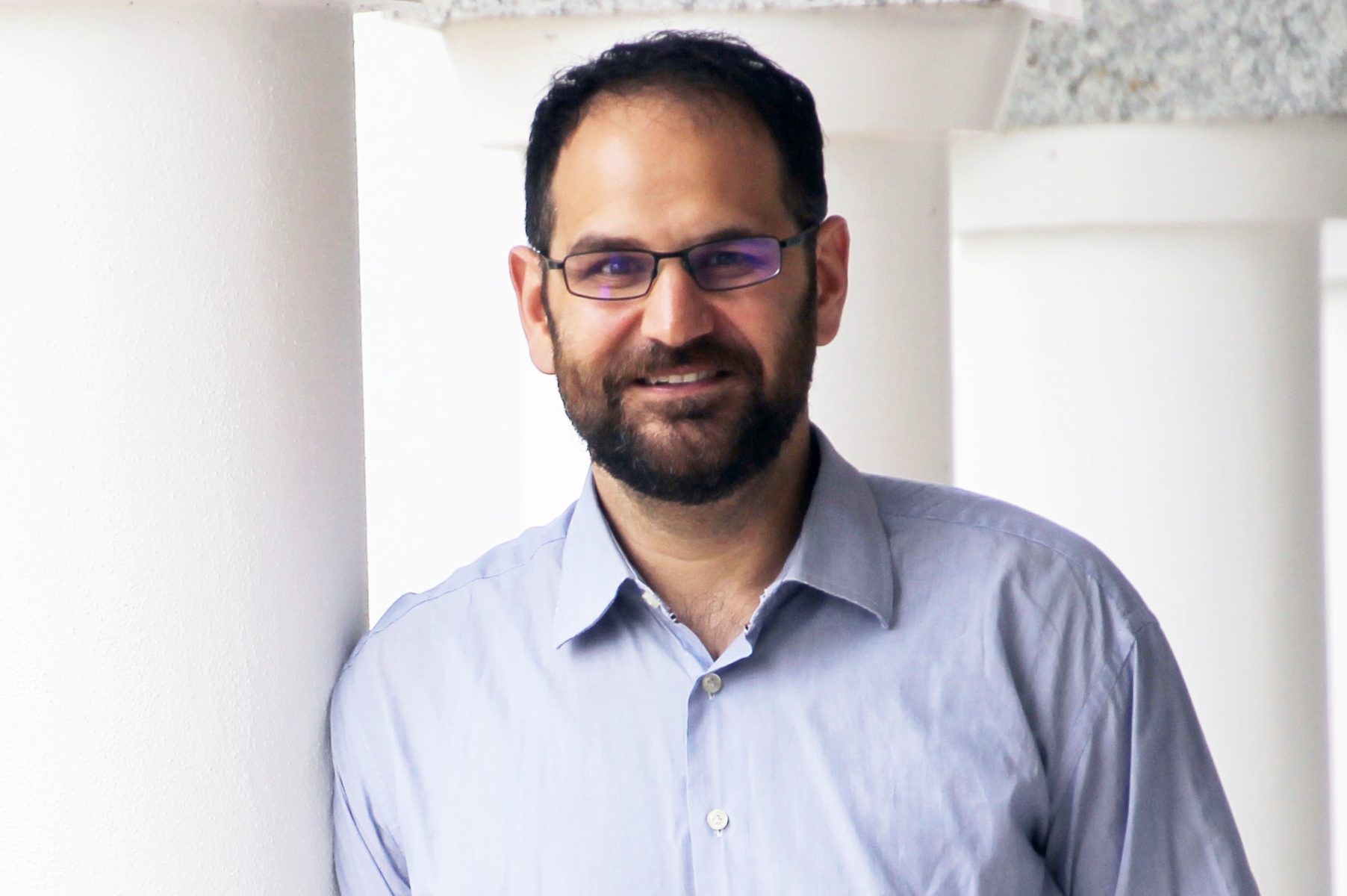Massey University Associate Professor of Economics Dr Matt Roskruge, Newshub’s Business Reporter Madison Reidy and Brigitte Morten from Franks Ogilvie Law dissect the news of the week with Tova O’Brien.
Stuff: Budget 2021: Māori Health Authority funding should be ‘at least’ proportionate to population, commentator says
The Government has provided $98.1 million in establishment funding, but the people the Māori Health Authority (MHA) will be helping are no closer to finding out how much of the overall health budget the new agency will receive.
…Massey University school of economics and finance associate professor Matthew Roskruge believed the new authority would have a procurement focus, rather than being a provider.
“Hopefully that changes and there’s a bit more money put into the provision of Māori health.
“I think we have to be really careful that [the set-up funding announced on Thursday] isn’t just a lolly scramble for consultants and for people to have opinions, and that it actually delivers something for iwi, hapū, whānau on the ground,” Roskruge said.
Stuff: Budget 2021: Moving the dial on Māori housing
The Government’s $380 million Budget investment in Māori housing has been heralded as a step in the right direction, rather than unleashing transformational change.
…Associate professor at Massey University’s school of economics and finance, Matthew Roskruge, said while the Māori housing spending was welcome, it demonstrated a cautiousness.
“But it’s a step in the right direction. If we see sustained investment at or above these levels over a number of budgets, it is actually realistic given our capacity to deliver. The economy is struggling to deliver already on a number of work programmes that are already there. There’s only so much resource and so much capacity,” Roskruge said.
Newshub: Budget 2021: Benefit increases, rent reforms needed to tackle child poverty in New Zealand – experts
Raising benefits and rent reforms are some of the key areas that need addressing in this year’s Budget to tackle child poverty in New Zealand, experts say.
…Dr Matt Roskruge, co-director of Te Au Rangahau and associate professor at Massey University’s School of Economics and Finance, says one thing that may be “scary” for governments is trying to break cycles of poverty.
“So there, we might be looking at things like greater criminal justice reform, putting more money into mental health, to rehabilitation programmes, to work-ready programmes, into adult education. Even public transport, because one of the biggest barriers for families living in poverty is just getting to places.”
Stuff: Job upheaval looms in health reforms, but overall numbers seem steady
The health sector reforms are set to cause upheaval at the top echelons, but job numbers may not change much overall, economists say.
… Dr Matt Roskruge (Te Atiawa, Ngāti Tama), a Massey University senior lecturer in the School of Economics and Finance, said a lot of jobs could be lost, and a lot of jobs created but in different areas.
“We’re going to see growth in employment in the ministry, in public health, in Māori health, the new health authority will need people.
“There will certainly be lots of people who lose their jobs and don’t find a new position because their job has changed,” he said.
Health boards had a lot of workers in areas such as bureaucracy, compliance, risk assessment and administration.
“There is an awful lot of the DHB workforce that isn’t directly involved in providing healthcare. If you’re centralising some of those roles, then depending on how they do it, you can imagine in the regions some of those jobs will go.”
Roskruge said the public health workforce in New Zealand had been gutted, and he welcomed the new public health authority.
“I’m really excited to see whether that public health authority can protect and grow that public health workforce and planning.
He was concerned that jobs might migrate to Wellington from the regions in the first round, administrative job restructure.
“We might lose some administrative functions … which is probably great news, because we were wasting huge amounts of money and effort in duplicating things across DHBs.
“The inability for the DHBs to communicate through IT platforms, for example, is just terrifying.”
He was hopeful Māori health providers would expand and move into a national level as a result of contracting to the Māori health organisation.
Stuff: Are minimum wage rises passed on to customers, as business groups claim?
The minimum wage rise on April 1 was the “last straw” for Dunedin cafe owner and academic Paula O’Kane, who has just increased prices for the first time in two years.
…Matt Roskruge (Te Atiawa, Ngāti Tama), Associate Professor at Massey University school of economics and finance, said minimum wage rises did not appear to have as big an impact on employment or poverty as other policies.
“It would be great to have a more targeted way of addressing poverty, but minimum wages are simple, it’s not ineffective, it’s an easy way for the Government to do something that’s seen as addressing poverty.”
According to MBIE, about 175,500 people were earning between the old minimum wage of $18.90 an hour and $20 an hour. That compared with the total 2.7 million people in employment.
“There aren’t too many people on minimum wage in firms, and for a lot of firms it doesn’t really increase their wages bill. A lot of companies were planning to increase their prices anyway,” Roskruge said.
Society had some tolerance for higher prices if it was supporting people in poverty, he said.
“Business owners seem to assume people are terrified of higher prices, it may be that sometimes people are willing to accept higher prices if it creates a social good.
The minimum wage appeared to help force companies to be more innovative and productive, using technological solutions instead of throwing cheap labour at a problem, he said.
“It should probably always have a place, but it would be nice to see New Zealand move to a level of productivity where companies are able to pay above a minimum wage towards the living wage.”
Stuff: Child poverty declines, but Māori, Pacific poverty rates ‘profoundly disturbing’
Child poverty has improved overall since 2018 according to annual figures released on Tuesday, but the statistics for Māori and Pasifika are “profoundly disturbing for New Zealand”, says Children’s Commissioner Andrew Becroft.
… Dr Matt Roskruge (Te Atiawa, Ngāti Tama), a Massey University senior lecturer in the School of Economics and Finance, said it was important to set and monitor a standard, as the Government had done.
However, the data appeared to be treading water, with a little bit of change as a result of a natural cycle.
“Other than material hardship [data], there’s certainly not a clear pattern emerging – which is what you’d want to see, given the ambition of the Government’s goals.
“You would want to be seeing really quite clear patterns year-in, year-out, of decline, otherwise we’re not going to get there.”
Looking at income and income inequality was important, but the data was not capturing the different levels of wealth.
“In fact most of these families are probably in a net negative wealth position, where they owe more money than the value of their assets.”
Increasing benefits as part of the solution, but the Government needed to look at non-financial support, such as truly free education, rent freezes, and more public housing, Roskruge said.
Te Ao – Māori News: Māori unemployment on the rise amidst Covid-19 lockdown
New Zealand’s economy continues to take a hit as the country is forced back into lockdown.
Coupled with recent figures showing Māori unemployment is rising, has raised questions about the equality of our economic system, and whether Māori will suffer the brunt of this latest development.
Economist and Co-Director of Te Au Rangahau at Massey University, Matthew Roskruge, said he was shocked when he saw the recent New Zealand statistics showed Pākehā unemployment was falling but Māori unemployment was doing the complete opposite.
“I think the government has used construction as a way of stimulating the economy. They’ve invested a lot of money in local and central government in a lot of these big infrastructure projects.”
“For Māori, I think the problem is this investment isn’t in the regions. This investment into construction is an industry that, typically, Māori are slightly under-represented compared to media or tourism which are really in trouble.”
Despite there being more rangatahi going into the workforce, Roskruge highlighted young Māori unemployment rates are going up as well.
“Our youth unemployment rate is, I think, around 10% and lots of those rangatahi are Māori and Pasifika, so that’s another part in the mix.”
NZ Herald: Maths decline – Ministry of Education calls in Royal Society to stop NZ mathematics rapid decline
An expert panel has been brought in by the Ministry of Education to improve students’ maths results – which have hit a record low.
Te Au Rangahau co-director Matt Roskruge is a member of the panel.
NBR: Could 2021 bring step-change to the Māori economy?
2021 Economic Outlook: economist Matt Roskruge spies matching ambitions.
While the twists and turns of 2020 left the most seasoned commentator giddy, perhaps the biggest surprise was just how well the local and global economy has managed to cope…
